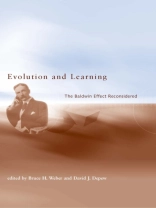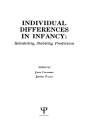The role of genetic inheritance dominates current evolutionary theory. At the end of the nineteenth century, however, several evolutionary theorists independently speculated that learned behaviors could also affect the direction and rate of evolutionary change. This notion was called the Baldwin effect, after the psychologist James Mark Baldwin. In recent years, philosophers and theorists of a variety of ontological and epistemological backgrounds have begun to employ the Baldwin effect in their accounts of the evolutionary emergence of mind and of how mind, through behavior, might affect evolution.The essays in this book discuss the originally proposed Baldwin effect, how it was modified over time, and its possible contribution to contemporary empirical and theoretical evolutionary studies. The topics include the effect of the modern evolutionary synthesis on the notion of the Baldwin effect, the nature and role of niche construction in contemporary evolutionary theory, the Baldwin effect in the context of developmental systems theory, the possible role of the Baldwin effect in computational cognitive science biosemiotics, and the emergence of consciousness and language.
David J. Depew & Bruce H. Weber
Evolution and Learning [PDF ebook]
The Baldwin Effect Reconsidered
Evolution and Learning [PDF ebook]
The Baldwin Effect Reconsidered
Köp den här e-boken och få 1 till GRATIS!
Språk Engelska ● Formatera PDF ● Sidor 352 ● ISBN 9780262285865 ● Redaktör David J. Depew & Bruce H. Weber ● Utgivare The MIT Press ● Publicerad 2007 ● Nedladdningsbara 3 gånger ● Valuta EUR ● ID 7973047 ● Kopieringsskydd Adobe DRM
Kräver en DRM-kapabel e-läsare












